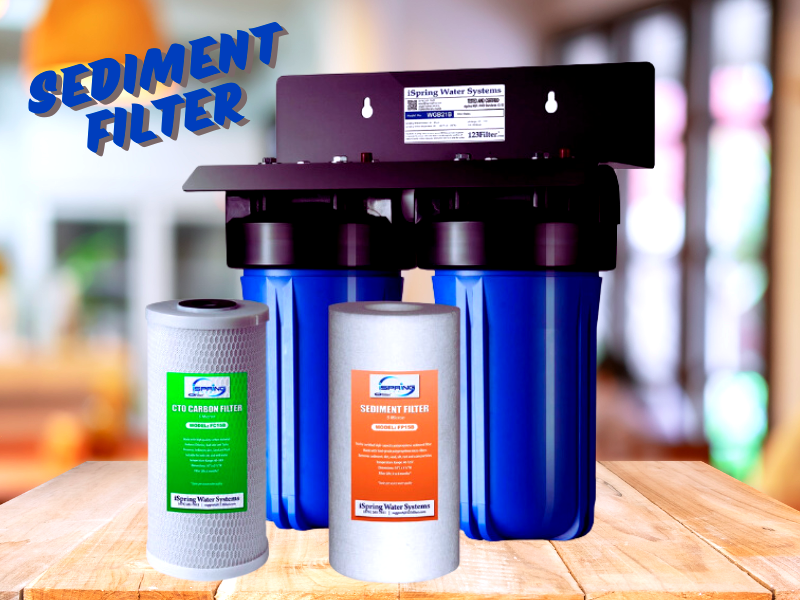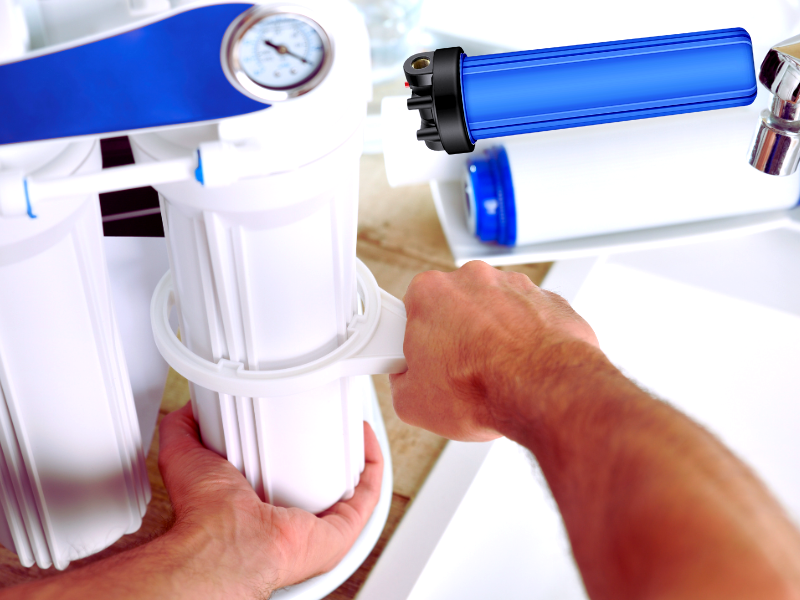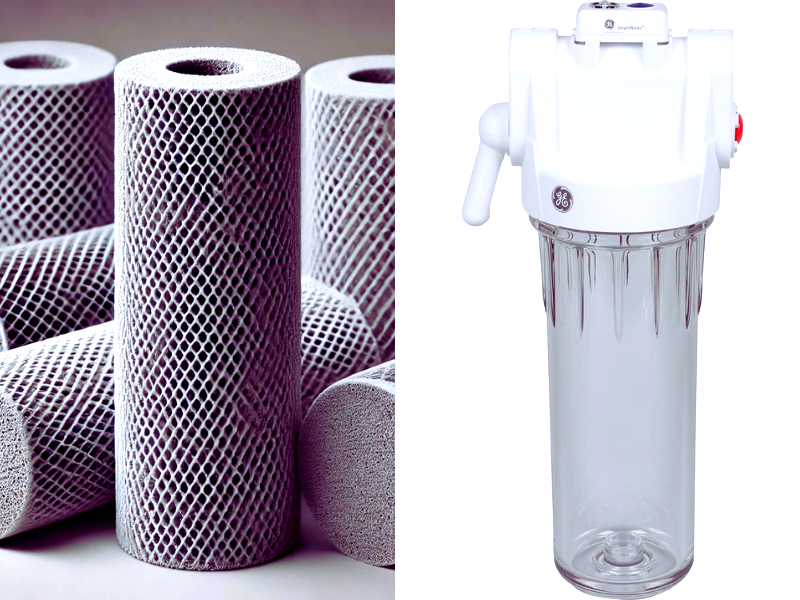Key Takeaways:
- Sediment filters are essential for maintaining the overall quality of your water supply.
- They protect your appliances and plumbing from costly repairs by removing dirt particles and other contaminants.
- Different types of sediment filters cater to various needs, ensuring cleaner water for your household.
Water quality is a crucial aspect of maintaining a healthy home. Whether you rely on city water or a private well, ensuring that your water is free from contaminants is essential. One common question homeowners ask is, "Do I need a sediment filter?" This article will delve into the importance of sediment filters, how they work, and why they are a vital component of any water filtration system.
What is a Sediment Filter?

A sediment filter is a special type of water filter that helps keep your water clean by removing tiny bits of dirt, sand, and other stuff you don’t want to drink. Think of it as the first line of defense for your water! It stops larger particles from clogging up other filters and helps protect your pipes and appliances.
Sediment filters come in different shapes and styles. There are pleated filters with many folds that give them a bigger surface area. This means they can filter more water at once! Then, there are surface filters that catch dirt on the outside and depth filters that trap smaller particles deep inside. Each type has its perks and works best in different situations. Using a sediment filter is easy to ensure your water stays clean and safe for you and your family. It's like having a superhero for your tap water!
Why You Need a Sediment Filter
Sediment filters provide essential protection for maintaining the overall quality of your water supply. They help remove sediment that can cause turbidity, or cloudiness, in your water. This not only improves the taste and appearance of your water but also protects your appliances and plumbing from damage.
Without a sediment filter, dirt particles and other contaminants can accumulate in your water heater, washing machine, and other appliances, leading to costly repairs and reduced efficiency. Additionally, sediment can clog pipes and reduce water flow, causing further issues in your home.
Types of Sediment Filters

There are several types of sediment filters available, each designed to address specific needs. The most common types include pleated filters, surface filters, and depth filters. Pleated filters are made from a folded material that provides a large surface area for trapping particles, making them ideal for high-flow applications. While pleated filters are ideal for high-flow applications, other sediment filters, such as surface and depth filters, cater to different needs and applications.
Surface filters, on the other hand, are designed to capture particles on the surface of the filter material. These filters are typically used in applications where the water contains large particulates. Depth filters are made from a thick, porous material that traps particles throughout the entire filter, making them effective at removing smaller particles.
How Sediment Filters Work
Sediment filters work by trapping particles as water passes through the filter material. The size of the particles that a filter can remove is determined by its micron rating. Filters with a lower micron rating can remove smaller particles, while those with a higher micron rating are better suited for larger particles.
For example, a filter with a 5-micron rating can remove particles as small as 5 microns, which is about the size of a human hair. In contrast, a filter with a 20-micron rating is better suited for removing larger particles, such as sand and silt.
Benefits of Using a Sediment Filter

Using a sediment filter offers several benefits, including improved water quality, protection for your appliances and plumbing, and reduced maintenance costs. By removing dirt particles and other contaminants, sediment filters help ensure that your water is clean and safe to use.
Additionally, sediment filters can extend the life of your water heater, washing machine, and other appliances by preventing clogs and reducing wear and tear. This can save you money on costly repairs and replacements in the long run.
Sediment Filters vs. Other Filtration Methods
While sediment filters are effective at removing particulate matter, they are not designed to remove dissolved contaminants, such as chlorine, heavy metals, and bacteria. For this reason, sediment filters are often used in conjunction with other filtration methods, such as carbon filters and water softeners. A sediment filter can be used to protect these other filtration systems by removing larger particulates before they reach the main filters.
Carbon filters are effective at removing chlorine, volatile organic compounds (VOCs), and other dissolved contaminants, while water softeners are designed to remove calcium and magnesium ions that cause hard water. By combining these filtration methods, you can ensure that your water is free from a wide range of contaminants.
Whole House Sediment Filters

Whole house sediment filters are designed to filter all the water entering your home, providing clean water for drinking, cooking, bathing, and other household uses. These filters are typically installed at the point where the water supply enters your home, ensuring that all the water is treated before it reaches your faucets and appliances. Whole house sediment water filtration ensures that all the water entering your home is treated, providing clean water for all household uses.
Whole-house sediment filters are particularly beneficial for homes with well water, as they can remove large amounts of sediment and other contaminants that are commonly found in private wells. By installing a whole house filter, you can protect your plumbing and appliances from damage and ensure that your water is safe to use.
Sediment Filters for Well Water
If you rely on a private well for your water supply, a sediment filter is essential for maintaining water quality. Well water often contains higher levels of sediment, such as sand, silt, and dirt, which can cause turbidity and clog your plumbing and appliances. Incorporating a sediment filter into your water treatment system can significantly improve the quality of well water.
A sediment filter can help remove these contaminants, ensuring that your water is clean and safe to use. Additionally, by preventing clogs and reducing wear and tear on your appliances, a sediment filter can help extend the life of your water heater, washing machine, and other household appliances.
Sediment Filters for City Water
Even if you rely on city water, a sediment filter can still be beneficial. While city water is typically treated to remove contaminants, it can still contain sediment and other particulate matter that can affect water quality and cause damage to your plumbing and appliances.
By installing a sediment filter, you can ensure that your water is free from dirt particles and other contaminants, improving its taste and appearance and protecting your appliances from damage. Additionally, a sediment filter can help reduce maintenance costs by preventing clogs and reducing wear and tear on your plumbing and appliances.
Choosing the Right Sediment Filter

When choosing a sediment filter, it's important to consider the specific needs of your water supply. Factors to consider include the size of the particles you need to remove, the flow rate of your water supply, and the type of filter material that is best suited for your application.
For example, if your water contains large amounts of sediment, a pleated filter with a high flow rate may be the best option. If you need to remove smaller particles, a depth filter with a lower micron rating may be more effective. Additionally, if you have a private well, a whole-house sediment filter may be the best choice for ensuring that all the water entering your home is clean and safe to use.
Filter Replacement and Maintenance
Regular filter replacement and maintenance are essential for ensuring that your sediment filter continues to function effectively. Over time, sediment filters can become clogged with dirt particles and other contaminants, reducing their effectiveness and potentially causing damage to your plumbing and appliances.
To ensure that your sediment filter continues to provide clean, safe water, it's important to replace the filter according to the manufacturer's recommendations. Additionally, regular maintenance, such as cleaning the filter housing and checking for leaks, can help extend the life of your filter and ensure that it continues to function effectively.
Sediment Filters and Carbon Filters

Sediment filters and carbon filters are also commonly used together to provide comprehensive water treatment. While sediment filters are effective at removing particulate matter, carbon filters are designed to remove dissolved contaminants, such as chlorine, VOCs, and other chemicals.
By combining these two filtration methods, you can ensure that your water is free from a wide range of contaminants, improving its taste and appearance and protecting your plumbing and appliances from damage. Additionally, by removing chlorine and other chemicals, carbon filters can help improve the overall quality of your water. A sediment prefilter can protect carbon filters by removing larger particulates before they reach the carbon filter.
Summary
Sediment filters are vital to any water filtration system, acting as the first line of defense against dirt and other unwanted particles. By removing sediment from your water supply, these filters not only improve the quality of your drinking water but also help protect your appliances and plumbing from damage, saving you from costly repairs down the line. Whether you get your water from a city supply or a private well, having a sediment filter is like giving your family the gift of clean and safe water to enjoy every day!
Keep up with the latest water filter tips and offers, and subscribe to our newsletter today!
FAQ
How often should I replace my sediment filter?
The frequency of filter replacement depends on the specific filter and the quality of your water supply. Generally, it's recommended to replace sediment filters every 3 to 6 months, but you should follow the manufacturer's recommendations for the best results.
Can I use a sediment filter with other filtration systems?
Yes, sediment filters are often used in conjunction with other filtration systems, such as carbon filters and water softeners, to provide comprehensive water treatment. Combining these filtration methods can help ensure that your water is free from a wide range of contaminants.
What is the difference between a pleated filter and a depth filter?
Pleated filters are made from a folded material that provides a large surface area for trapping particles, making them ideal for high-flow applications. Depth filters, on the other hand, are made from a thick, porous material that traps particles throughout the entire filter, making them effective at removing smaller particles.








